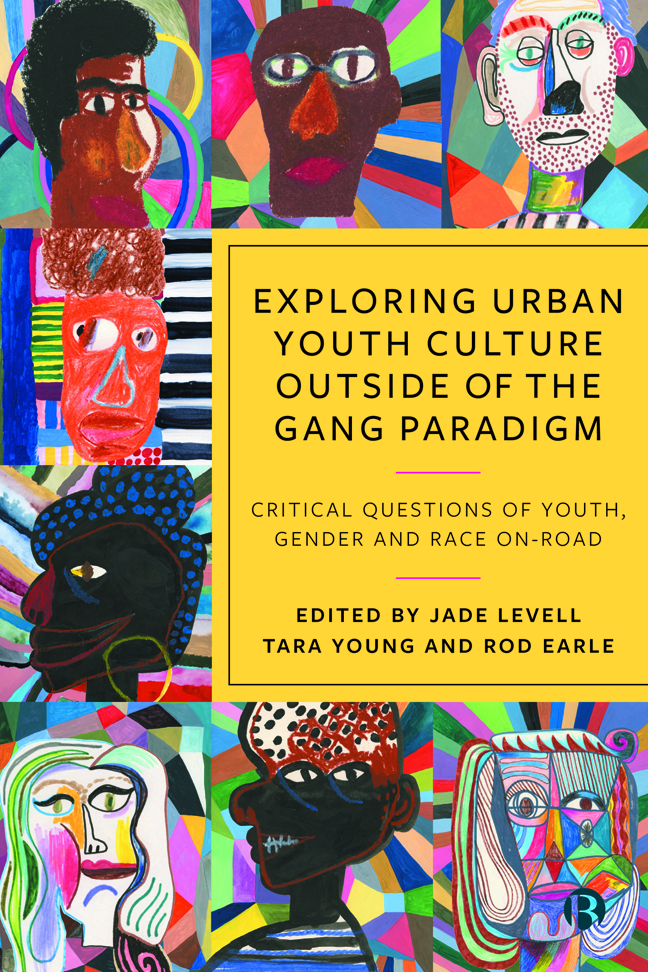 Exploring Urban Youth Culture Outside of the Gang Paradigm
Exploring Urban Youth Culture Outside of the Gang Paradigm Book contents
- Frontmatter
- Contents
- Notes on Contributors
- Foreword
- Preface
- 1 Introduction: Youth and On-Road – Making Gender and Race Matter
- 2 Black, British Young Women On-Road: Intersections of Gender, Race and Youth in British Interwar Youth Penal Reform
- 3 Tainted Love: Intimate Relationships and Gendered Violence On-Road
- 4 (The) Trouble with Friends: Narrative Stories of Friendship and Violence On-Road
- 5 The Sexual Politics of Masculinity and Vulnerability On-Road: Gender, Race and Male Victimisation
- 6 The Road, in Court: How UK Drill Music Became a Criminal Offence
- 7 On-Road Inside: Music as a Site of Carceral Convergence
- 8 Jeta e Rrugës: Translocal On-Road Hustle, Within and from Albania
- 9 ‘He's shown me the road’: Role Model and Roadman
- 10 Diary of an On-Road Criminologist: An Auto-Ethnographic Reflection
- 11 Conclusions, Compromises and Continuing Conversations
- Index
4 - (The) Trouble with Friends: Narrative Stories of Friendship and Violence On-Road
Published online by Cambridge University Press: 24 January 2024
- Frontmatter
- Contents
- Notes on Contributors
- Foreword
- Preface
- 1 Introduction: Youth and On-Road – Making Gender and Race Matter
- 2 Black, British Young Women On-Road: Intersections of Gender, Race and Youth in British Interwar Youth Penal Reform
- 3 Tainted Love: Intimate Relationships and Gendered Violence On-Road
- 4 (The) Trouble with Friends: Narrative Stories of Friendship and Violence On-Road
- 5 The Sexual Politics of Masculinity and Vulnerability On-Road: Gender, Race and Male Victimisation
- 6 The Road, in Court: How UK Drill Music Became a Criminal Offence
- 7 On-Road Inside: Music as a Site of Carceral Convergence
- 8 Jeta e Rrugës: Translocal On-Road Hustle, Within and from Albania
- 9 ‘He's shown me the road’: Role Model and Roadman
- 10 Diary of an On-Road Criminologist: An Auto-Ethnographic Reflection
- 11 Conclusions, Compromises and Continuing Conversations
- Index
Summary
Introduction
In seeking to understand why people engage in crime and violence, social scientists have pointed out the importance of studying the social relationships between young people, especially those thought to be in, or associated with, street gangs. Early scholarship on juvenile delinquency has produced some consistent findings. One such finding consistent in these works is the homophilous nature of friendship groups. Young people are thought to gravitate towards others who are like them. They are ‘birds of a feather that flock together’ (Glueck and Glueck, 1950), bonding on the basis of gender, race or class, a shared sense of ‘esprit de corps’ derived from loyalty, respect, attachment, trust and trustworthiness (Thrasher, 1927), a commitment to a defiant counterculture (Miller, 1958) or a set of informal rules that govern interpersonal behaviour among young people including law-breaking behaviour and the perpetration of violence (Anderson, 1999). Pro-social attitudes towards offending are thought to be transmitted through peer groups (Sutherland and Cressey, 1996; Akers, 1973) and solidify group cohesion especially in the face of status challenges and external threat (Klein, 1975).
While some early scholars, such as Thrasher (1927), have emphasised comradery as the glue that gels young people together, another finding, especially in the early studies, is the view that young men who engage in crime and delinquency do not have the ability to form credible friendships. For example, the view from control theorists such as Hirschi (1969) is that young people engaged in illegal behaviour are unable to make and sustain positive relationships because they lack a thorough grasp of what a friend is and do not have the social skills to be able to formulate positive relationships. Commensurate with this view is that delinquents lack selfcontrol (Gottfredson and Hirschi, 1990), are morally vacuous and express little feelings of guilt or remorse (Cloward and Ohlin, 1960) or, according to Albert Cohen (1955), ‘act with spite, malice and make the virtuous feel uncomfortable’.
A third significant theme running through the extant literature and policy documentation on crime and violence that involves young people as perpetrators and victims is the conflation between friendship, criminality and ‘gangs’.
- Type
- Chapter
- Information
- Exploring Urban Youth Culture Outside of the Gang ParadigmCritical Questions of Youth, Gender and Race On-Road, pp. 59 - 80Publisher: Bristol University PressPrint publication year: 2023


